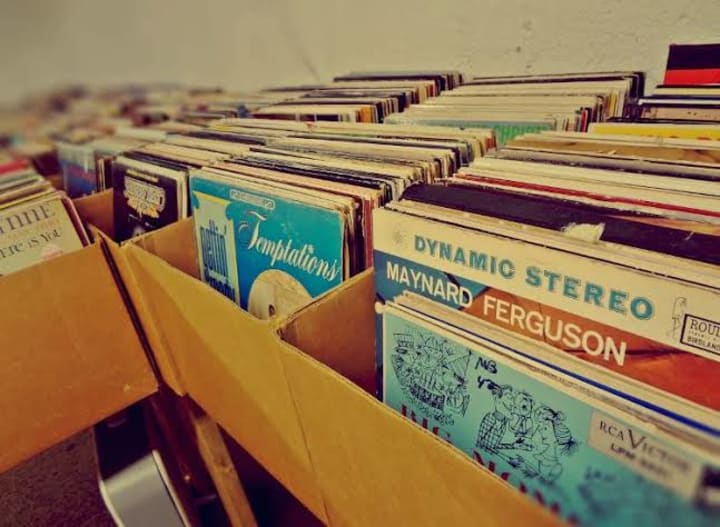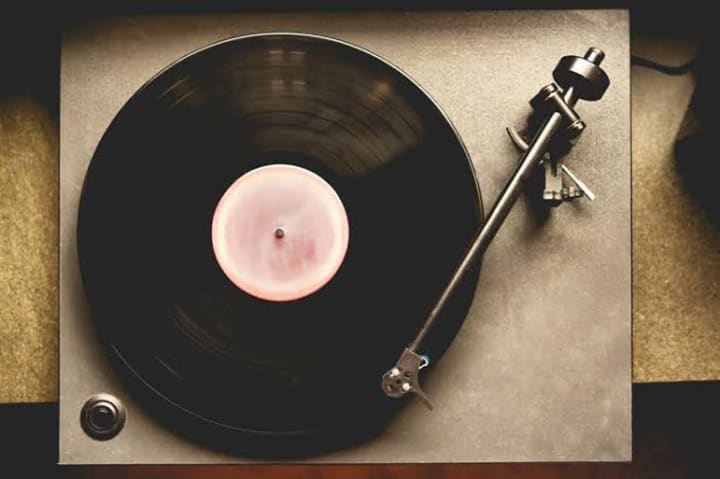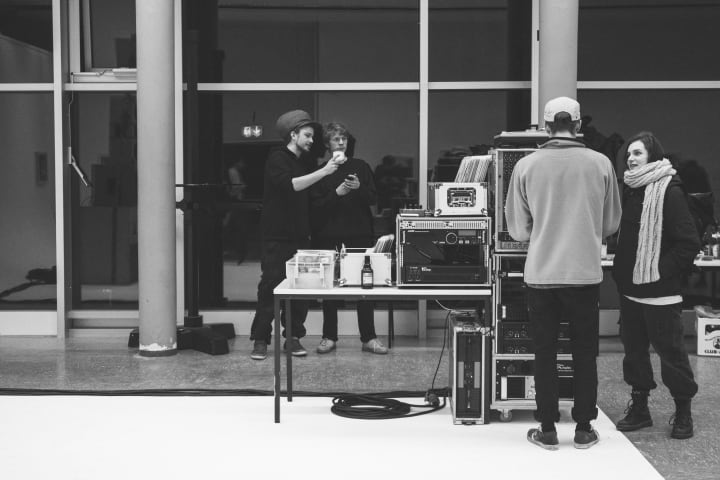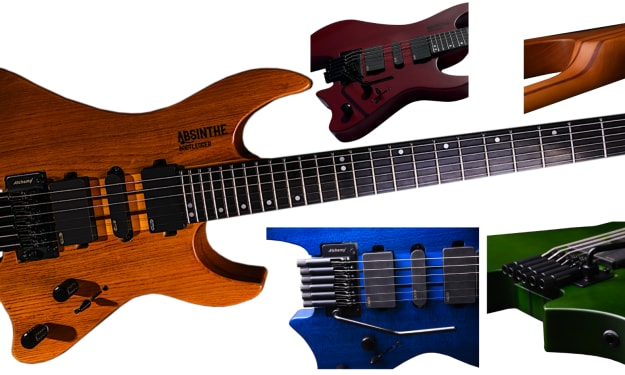The Vinyl Myth
Vinyl records sound better, right?

Throughout my years of moving through various musical circles consisting of music lovers, musicians, engineers, and audiophiles, one topic seems to be hotly debated among all of them, there is a real fascination among every corner of the musical community in a long antiquated music format: The vinyl record. Some people enjoy the tactility and the ritual, which is a requirement when listening via this medium, others swear by its "superior" audio quality. The latter are the group perpetuating what I'm going to refer to from now on as the "vinyl myth."
To understand how these worshippers of the plastic disc formed this conclusion, we have to take a crash course in digital audio and how MP3 compression works:

Digital music comes in two main forms. Lossy filetypes like MP3, which in order to reduce the size of the file remove small pieces of the original track that your brain is less likely to hear. This comes at severe detriment to audio quality the more a song is compressed. The other filetypes like WAV or FLAC are lossless. These files do not use compression and, therefore, keep their sonic integrity at the trade off of much larger file sizes. One thing both kinds of audio files have in common is a digital floor and ceiling for frequencies. All digital signals cut off below 20Hz and 20kHz, which is the generally accepted range of human hearing. Analogue systems do not have any of these limitations.
Using simple logic would come to say that a vinyl record would have to sound better, right? If it doesn't share the limitations of digital audio, it has to sound better; case closed...
Well, it isn't quite as simple as that. It is important for me to say that vinyl absolutely sounds better than a highly compressed audio file, but it can be virtually indistinguishable from a lossless digital audio file, and even higher quality lossy filetypes to those without highly trained ears.
But there are less available frequencies in a digital recording. Wouldn't that affect the quality? Well... no. Some may argue that phantom frequencies beyond our range of hearing still assist in our listening experience, but they are just that—phantom. We will never hear them.

Once you take heed of these factors, to many, the superiority complex might begin to wane as you try to look for any true practical benefits. Vinyl records and record players are far from portable, not in the way digital audio is today with access to millions of songs in your pocket; some streaming services like Tidal even offer lossless streaming. Records degrade over time and need to be cleaned to maintain sonic integrity; digital isn't even physical. Then there's price. Even a cheap record player will cost you in the hundreds, excluding speakers and an amplifier to run it all. Even records cost $40 a pop on average. An average online subscription service is around $12 a month.
After all of these revelations, you might feel like those who love vinyl are a pack of hipster morons who get off on inconveniencing themselves like masochists with commitment issues, but there is one place where the vinyl record is truly superior to digital: Its legacy.
Vinyl records have sustained their popularity, outliving nearly every format that has been in use for almost a century. As a result, the format has seen almost every stage of the history of recorded music. Every old record is a little piece of history. Not only that, but the majority of 20th century music was made specifically for the format. An old vinyl record is the definitive way the artist wanted you to hear that song. Digital remasters are nice and all, but they don't hold the same magic as the original master.
Vinyl may not be as convenient or simple as digital, it doesn't have true sonic superiority anymore, but what it does have is an incredible history, which is why I'll always make space for my record collection.

Photo by Malte Michels on Unsplash






Comments
There are no comments for this story
Be the first to respond and start the conversation.